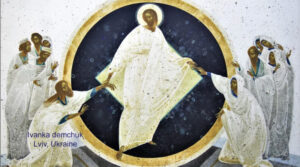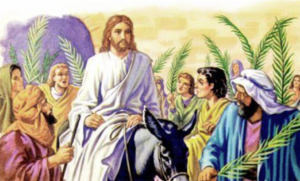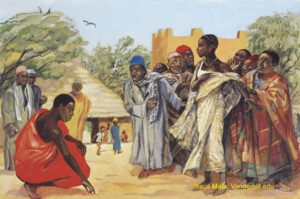Bishop Barron begins this video with these words:
“We say the Eucharist is not simply a sign or a symbol. It is Jesus really, truly and substantially present under the Eucharistic signs of bread and wine. Well, how can we begin to explain this doctrine which can strike a lot of people as odd?”
Bishop Barron’s explanations of the very central belief of the Catholic Church come from his reflection on the Bread of Life Discourse in St. John’s Gospel.
He reflects on these passages from the Gospel, placed here for you to ponder before and after viewing the video.
• “Don’t search for bread that perishes but look for the bread that lasts unto eternal life.” (John 6:27)
• “I myself and the Living bread come down from heaven. Eat my flesh and drink my blood.” (John 6:51)
• The crowd balks at this. Bishop Barron says, “So Jesus here is given every opportunity to explain his words, ‘Well it’s a metaphor.’ Instead he intensifies his language. ‘Amen. Amen. I say to you, unless you eat the flesh of the Son of Man and drink his blood you have no life within you.’ (John 6: 47) and He intensifies by saying. ‘My flesh is real food. My blood is real drink.'” (John 6:55)
If you’re still puzzled, wondering, ‘Well, how could this be?’ consider the power of words. . . . Words can describe. For instace, I can describe what’s going on in this room. But also, words can effect reality and not just describe it. You have to consider Who is the person who is speaking (and the power they possess).”
WHO IS JESUS? A PROPHET OR THE WORD MADE FLESH?
“What Jesus says is. It effects reality – because of the One Who speaks.”
“When Jesus says it, because of who he is, his words have the power to transform reality at the most fundamental level. And that’s the claim of the Church – that the substance of the bread and wine, the deepest reality of the bread and wine, change into the substance of the Body and Blood of Jesus. That’s the church’s claim. The ground of it is John chapter 6. The explanation of it, I think, is the power of the divine Word present in Jesus.”
THE MASS
“Now when the priest at Mass effects the Eucharistic change what’s going on? He’s not speaking his own puny words, but rather, at the consecration, the priest speaks in Persona Christi, in the very person of Christ. He recounts what Jesus did. But then he moves into that first person discourse, “Take this, all of you, and eat. It this is my body.” He speaks with the full authority of Christ, which is why his words have the power to change the elements. And see, that’s why for Catholics, and we saw it in Atlanta, that’s why for Catholics, the only proper response, when you’re in the presence of those transformed elements, is to bow down and worship.”




